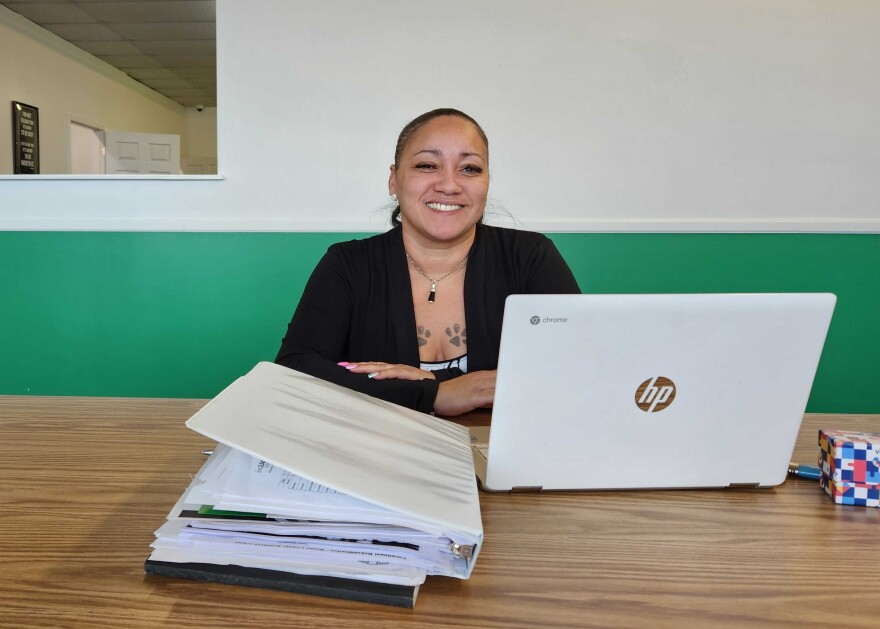Jessica Chambers, a peer support specialist at the Reentry Opportunity Center in Columbia (ROC), works with folks who are coming out of prison – helping them connect to housing, treatment and a sense of community.
She’s one of two caseworkers currently working with the ROC’s nearly 900 clients, and spoke about some of their services and some of the challenges people can face as they integrate back into the world.
Missouri Health Talks gathers Missourians’ stories of access to healthcare in their own words.
Jessica Chambers: I've been doing this type of work for about four years. The reason why I got involved is because I have a lot of family members and this has been an impact on my life.
The ROC is a reentry center that helps those reenter society who have been incarcerated at one point in time and also just a resource center for anybody who needs resources.
We have like a connection with the probation and parole – so they normally refer them to come here as their first stop – and it helps people get housing and transportation, clothing, those things are important, identification and things like that, that you need to survive as a citizen out in the community.
We also have Easy Wireless here that offers a free government phone for five years – unlimited talk, text and internet. So, that provides these people who are reentering with a lifeline. Also a way to get employment, a way to apply for housing and things like that.
"A lot of times whenever you have been incarcerated, you're not accepted as much – even by your loved ones. They don't know whether they can trust you or not."Jessica Chambers
My favorite thing is when someone comes back because that means the we did our job, and they want to come back. They feel comfortable and they feel like this is a place that they can be trusted, or that they can feel comfortable, or that can open up and share whatever they're feeling and not be judged.
A lot of times whenever you have been incarcerated, you're not accepted as much, even by your loved ones. They don't know whether they can trust you or not, and also with landlords, they don't want to rent to you because you have a charge that you've been in prison, maybe selling drugs. A person can change from selling drugs.
Also, educational wise, you try to apply to go to college, you get denied because you have a felony on your background. You want to take your kids on a field trip because you've been locked up for five or six years and you get denied.
Those types of things are not only affecting that person and making them feel some type of way where they don't want to keep trying – they want to give up because everything seemed to fail.
So, how do you go beyond this? So, try not to judge them so much, you know, especially family members.
I definitely would like to see more jobs available for people who are in reentry. I kind of would like to see the question on the housing application go away: 'Do you have felonies on your background? What was it? When was it? How was it?' You know, all those things, because that's stopping people from living in better areas.
Like if you want a better life, you gotta go to a better area because if you're used to this life over here, how can you stay over there and do something different, you know?
Also just more education and stuff like that offered to people who are reentering society so they can be successful and move ahead from where they started, you know?




